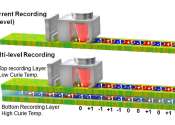The magnet trick: New invention makes vibrations disappear
When everything shakes, precision is usually impossible—everybody who has ever tried to take a photo with shaky hands or make handwritten notes on a bumpy bus journey knows that. With technical precision measurements, even ...
23 hours ago
1
47









